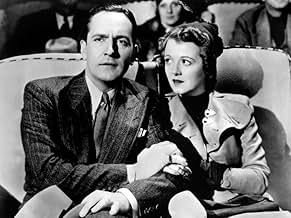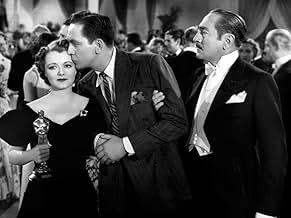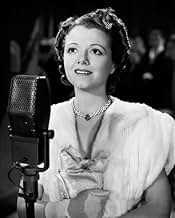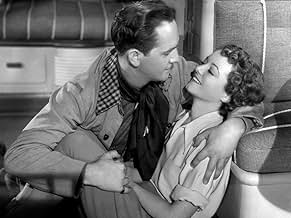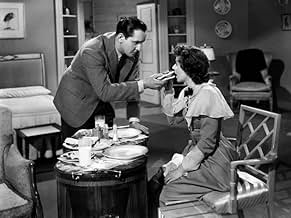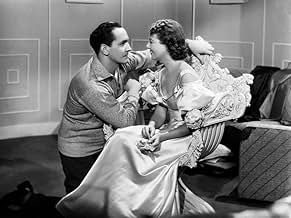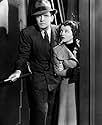Young Esther Victoria Blodgett comes to Hollywood with dreams of stardom and achieves them only with the help of alcoholic leading man Norman Maine, whose best days are behind him.Young Esther Victoria Blodgett comes to Hollywood with dreams of stardom and achieves them only with the help of alcoholic leading man Norman Maine, whose best days are behind him.Young Esther Victoria Blodgett comes to Hollywood with dreams of stardom and achieves them only with the help of alcoholic leading man Norman Maine, whose best days are behind him.
- Won 1 Oscar
- 7 wins & 7 nominations total
Guinn 'Big Boy' Williams
- Posture Coach
- (as Guinn Williams)
Jean Acker
- Woman at Preview
- (uncredited)
Eric Alden
- Niles' Assistant
- (uncredited)
Irving Bacon
- Station Agent
- (uncredited)
Jane Barnes
- Waitress #1
- (uncredited)
Vince Barnett
- Otto
- (uncredited)
Clara Blandick
- Aunt Mattie
- (uncredited)
Featured reviews
This is perhaps my favorite movie from the thirties. The writing, the acting, the directing, the music are virtually perfect. It is a rare kind of movie. The dialogue is sharp, smart, witty, compassionate, mature and incredibly contemporary. It could have been written last week. It is not afraid to deal with real life: alcoholism, drunk driving, failure, success, suicide. The characters are real. The drama is firmly anchored in real life. The writers are obviously good people who feel and think deeply. This movie was blissfully free from the usual contrived plots. What a breath of fresh air! The music alone makes it worth HEARING again and again.
I loved the fact that the movie didn't try prove anything. It just tells a story in an esthetically satisfying manner. It is of the same high quality as "The Best Years Of Our Lives". I haven't seen subsequent versions, but they cannot possibly be as good.
This the the most wonderful homage Hollywood ever paid to itself, to all those ordinary folks who became stars, or who valiantly tried and failed, or whose goals were more modest, and who achieved fulfillment behind the scenes.
This is the Hollywood epic standing proud and tall, and it is impossible not to shed a tear of admiration and affection.
I loved the fact that the movie didn't try prove anything. It just tells a story in an esthetically satisfying manner. It is of the same high quality as "The Best Years Of Our Lives". I haven't seen subsequent versions, but they cannot possibly be as good.
This the the most wonderful homage Hollywood ever paid to itself, to all those ordinary folks who became stars, or who valiantly tried and failed, or whose goals were more modest, and who achieved fulfillment behind the scenes.
This is the Hollywood epic standing proud and tall, and it is impossible not to shed a tear of admiration and affection.
Fredric March gave a magnificent performance, probably the best of his career, as Norman Maine, the actor whose career is in the descendant as that of his wife, Vikki Lester, is in the ascendant in this, the first 'official' version of "A Star is Born", (the 1932 film "What Price Hollywood" roughly told the same story). March displays just the right degree of brashness, of knowingness, and a combination of ego and a real actor's almost complete lack of ego. It's a miraculous piece of work.
As Lester, Janet Gaynor is touchingly blank but the star quality she is meant to display seems conspicuously absent; (in the 1954 musical remake Judy Garland was almost too much a star). It seems inconceivable that she could eclipse March on screen (even with his drinking). If Lester is a star and possibly a great actress Gaynor keeps the secret to herself.
The script for this version was partly written by Dorothy Parker and Alan Campbell and it shows. It's an acerbic and, at times, savage movie about the movies, quite cynical for a major studio picture of it's day. It is very well directed by William Wellman who draws first-rate performances from the supporting cast, in particular Lionel Stander as a heartless, slime-ball studio hack. This remains the best of the three versions to come thus far.
As Lester, Janet Gaynor is touchingly blank but the star quality she is meant to display seems conspicuously absent; (in the 1954 musical remake Judy Garland was almost too much a star). It seems inconceivable that she could eclipse March on screen (even with his drinking). If Lester is a star and possibly a great actress Gaynor keeps the secret to herself.
The script for this version was partly written by Dorothy Parker and Alan Campbell and it shows. It's an acerbic and, at times, savage movie about the movies, quite cynical for a major studio picture of it's day. It is very well directed by William Wellman who draws first-rate performances from the supporting cast, in particular Lionel Stander as a heartless, slime-ball studio hack. This remains the best of the three versions to come thus far.
I had not watched this movie until today, passing up each opportunity over the years to view it, as I feared it would not live up to the 1954 blockbuster starring Judy Garland and James Mason.
I was right, it does not; it far surpasses the 1954 remake. Judy Garland is my favorite all-round entertainer, favorite singer, and the songs in the 1954 movie are classic treasures, and James Mason never disappoints in any film. However, in the 1937 version the story is told more sensitively, with more shading. Janet Gaynor is perfect as the home-grown farm girl seeking to make her mark in Hollywood, and Fredric March is very convincing as the has-been who cannot cope with his declining value in Hollywood, especially since he caused much of it himself.
I had thought that I might miss the music in this earlier version, but I found after having watched it that I didn't miss it at all. The movie was engrossing from beginning to end and stood on its own merits. I was moved by this film in a way that I never had been by the later remake.
SEE this film if you love a good story; don't put it off for years the way I did. Simply, simply wonderful...
I was right, it does not; it far surpasses the 1954 remake. Judy Garland is my favorite all-round entertainer, favorite singer, and the songs in the 1954 movie are classic treasures, and James Mason never disappoints in any film. However, in the 1937 version the story is told more sensitively, with more shading. Janet Gaynor is perfect as the home-grown farm girl seeking to make her mark in Hollywood, and Fredric March is very convincing as the has-been who cannot cope with his declining value in Hollywood, especially since he caused much of it himself.
I had thought that I might miss the music in this earlier version, but I found after having watched it that I didn't miss it at all. The movie was engrossing from beginning to end and stood on its own merits. I was moved by this film in a way that I never had been by the later remake.
SEE this film if you love a good story; don't put it off for years the way I did. Simply, simply wonderful...
I believe this as one of the most beautiful pictures I have ever seen. I enjoyed the story, the dialog and above all I enjoyed the atmosphere and the actors. All of them are great but to me Fredric March is outstanding.
Norman/Alfred is a wonderful character: frail, undignified, touchy, weak and able to love Vicki/Esther so much, with all his heart.
Fredric March brings all of it on the screen, providing one of his best performances here.
If you would like to become an actor, I believe you should watch this movie and Mr. March's way of acting. Pay attention to his eyes, his hands, his face and his moves, especially when he interrupts his wife thanking everybody for the Oscar she got and claims he deserves three statues for the worse performances.
He is overcome by himself and starts dying. I just shivered.
To me, this version can't be compared to its remakes. The allure and the fascination of Hollywood have been perfectly represented here, together with an unpleasant and creepy feeling of emptiness.
Norman/Alfred is a wonderful character: frail, undignified, touchy, weak and able to love Vicki/Esther so much, with all his heart.
Fredric March brings all of it on the screen, providing one of his best performances here.
If you would like to become an actor, I believe you should watch this movie and Mr. March's way of acting. Pay attention to his eyes, his hands, his face and his moves, especially when he interrupts his wife thanking everybody for the Oscar she got and claims he deserves three statues for the worse performances.
He is overcome by himself and starts dying. I just shivered.
To me, this version can't be compared to its remakes. The allure and the fascination of Hollywood have been perfectly represented here, together with an unpleasant and creepy feeling of emptiness.
Janet Gaynor plays Esther Blodgett beautifully, a girl who leaves for Hollywood with dreams of film magazines and the blessing of her granny. Once there she finds it tough-going until meeting Norman Maine (Fredric March) at a party. We've already seen Norman drunk at a theatre but here he charms Esther and actually gets her into the movies before marrying her and watching his own career crumble. March is excellent in this, and the look of the film is surprisingly modern with its lovely technicolor and gadgets (I particularly like the shower in the motor home Esther and Norman take on honeymoon). Esther's move to become star Vicki Lester, Oscar-winning actress, is unbelievable but as her real-life tragedy unfolds, compelling. And who can stay dry-eyed at the end? Remade with music and Judy Garland in 1954 (very well) but this first version is a jewel amongst other 30s classics.
Did you know
- TriviaThe first all-color film nominated for an Academy Award for Best Picture.
- GoofsThe Night Court Judge refers to the "commonwealth" of California, but California isn't one of the states with commonwealth status. The judge should have referred to the "state" instead.
- Quotes
Grandmother Lettie: If you've got one drop of my blood in your veins, you won't let Mattie or any of her kind break your heart, you'll go right out there and break it yourself.
- Alternate versionsAlso available in black and white
- ConnectionsEdited into What's Cookin' Doc? (1944)
- SoundtracksCalifornia, Here I Come
(1924) (uncredited)
Music by Joseph Meyer
(variations in the score as Esther arrives in Hollywood)
Details
- Release date
- Country of origin
- Language
- Also known as
- Nace una estrella
- Filming locations
- Production companies
- See more company credits at IMDbPro
Box office
- Budget
- $1,173,639 (estimated)
- Runtime
- 1h 51m(111 min)
- Aspect ratio
- 1.37 : 1
Contribute to this page
Suggest an edit or add missing content


